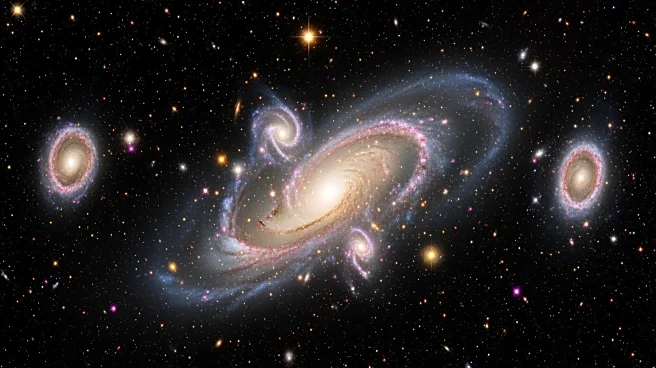What's Happening?
A recent study led by astronomers from Cambridge University has revealed that the universe's earliest galaxies were chaotic and turbulent. Using the James Webb Space Telescope (JWST), the team observed
272 small galaxies dating back to between 800 million and 1.5 billion years after the Big Bang. These early galaxies were found to be unstable, with gas moving in all directions, creating turbulent eddies and shock waves. This contrasts with the more stable, rotating disk galaxies seen in the nearby universe today. The study highlights the dynamic nature of early galaxy formation, driven by bursts of star formation and the influence of supermassive black holes.
Why It's Important?
The findings provide crucial insights into the early stages of galaxy formation and evolution. Understanding the chaotic nature of early galaxies helps astronomers piece together the history of the universe and the processes that led to the formation of the structured galaxies we see today. This research also aligns with theoretical models predicting that early galaxies were turbulent and clumpy. The study's results could influence future research directions and improve our understanding of cosmic evolution, potentially impacting fields such as cosmology and astrophysics.
What's Next?
The research team plans to combine their observations of ionized hydrogen gas with upcoming data on cold gas and dust in these early galaxies. This will provide a more comprehensive view of galaxy structure and evolution. Future studies using the JWST and other observatories will continue to explore the transition from chaotic early galaxies to the more orderly systems observed today, offering further insights into the universe's history.









